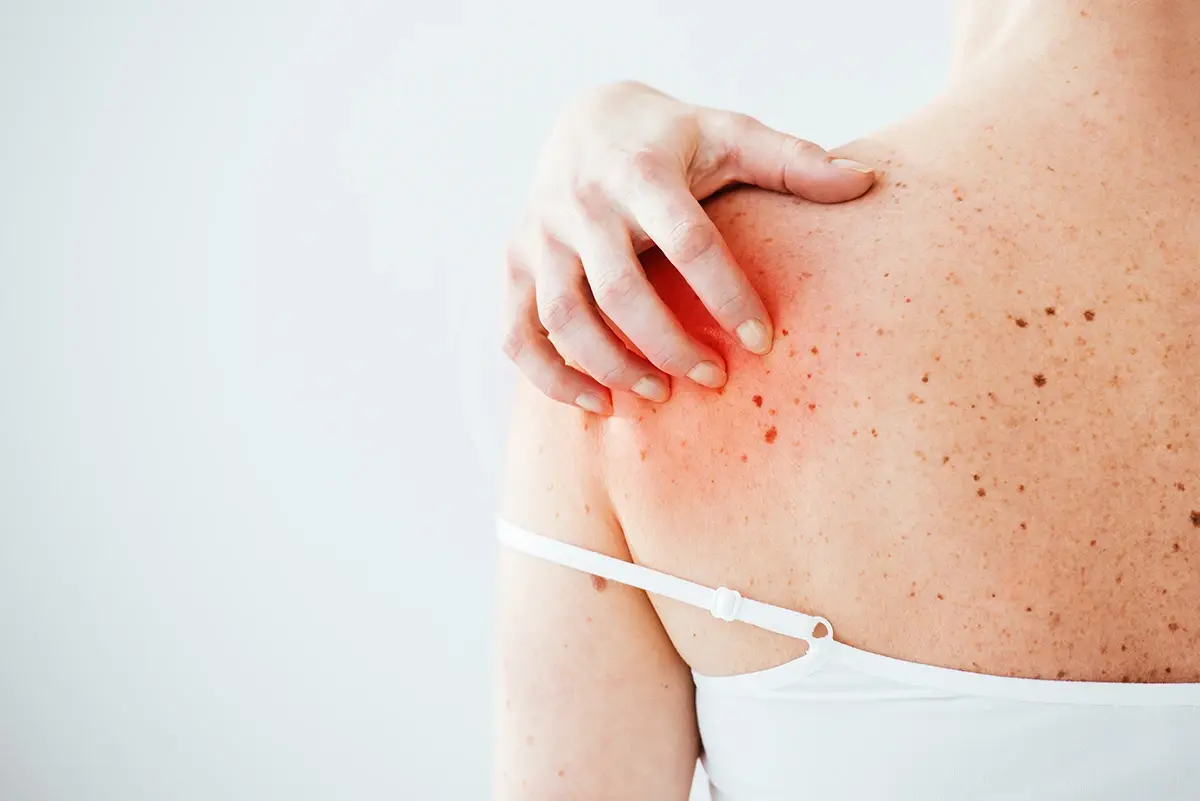Research & Trends
A study finds that high sodium intake may raise the risk of developing dry, itchy skin.
Family history and allergies are common risk factors for chronic skin conditions like eczema.

These can be worsened by factors such as pollution, perspiration, cold weather, hard water, certain cosmetics, and even specific foods. However, new research from the US highlights a common dietary component that may contribute to the increased risk of developing dry, itchy skin. A study finds that high sodium intake may raise the risk of developing dry and itchy skin.
According to the French Institute of Health and Medical Research (INSERM), atopic dermatitis, also known as atopic eczema, is a chronic inflammatory skin disease characterized by dry skin, redness, itching, and lesions that flare up intermittently. INSERM points to both genetic and environmental causes for the condition, while also highlighting its impact on mental health. Studies around the globe have shown a rise in cases of this chronic disease, especially in industrialized nations, where environmental changes and modern lifestyles play a role.
This rising trend prompted researchers from the University of California, San Francisco (UCSF), to investigate whether a common ingredient—salt—could be linked to skin dryness, itching, and the risk of eczema. By analyzing data from 215,832 adults between 37 and 73 years old from the UK Biobank, the researchers examined sodium levels in urine and compared them with atopic dermatitis diagnoses. A study finds that high sodium intake may raise the risk of developing dry and itchy skin, with their research revealing an 11% higher risk of eczema diagnosis, a 16% rise in the number of cases, and an 11% increase in severity for every extra gram of sodium excreted in a 24-hour period.
To further validate these findings, the UCSF team reviewed data from 13,014 American adults as part of the National Health and Nutrition Examination Survey. The results were similar, showing that consuming just one additional gram of sodium per day—about half a teaspoon of salt—was linked to a 22% higher chance of having active eczema. A study finds that high sodium intake may raise the risk of developing dry and itchy skin, suggesting that reducing salt consumption may help manage eczema flare-ups more effectively.
Katrina Abuabara, MD, associate professor of dermatology at UCSF, emphasized the significance of this discovery, stating that most Americans consume too much salt and could benefit from cutting down to recommended levels. Reducing sodium intake could be a key recommendation for patients looking to prevent unexpected eczema flare-ups. With more than 31.5 million people affected by eczema in the United States, according to the National Eczema Association, this study sheds light on a potential dietary intervention for managing the condition.





















